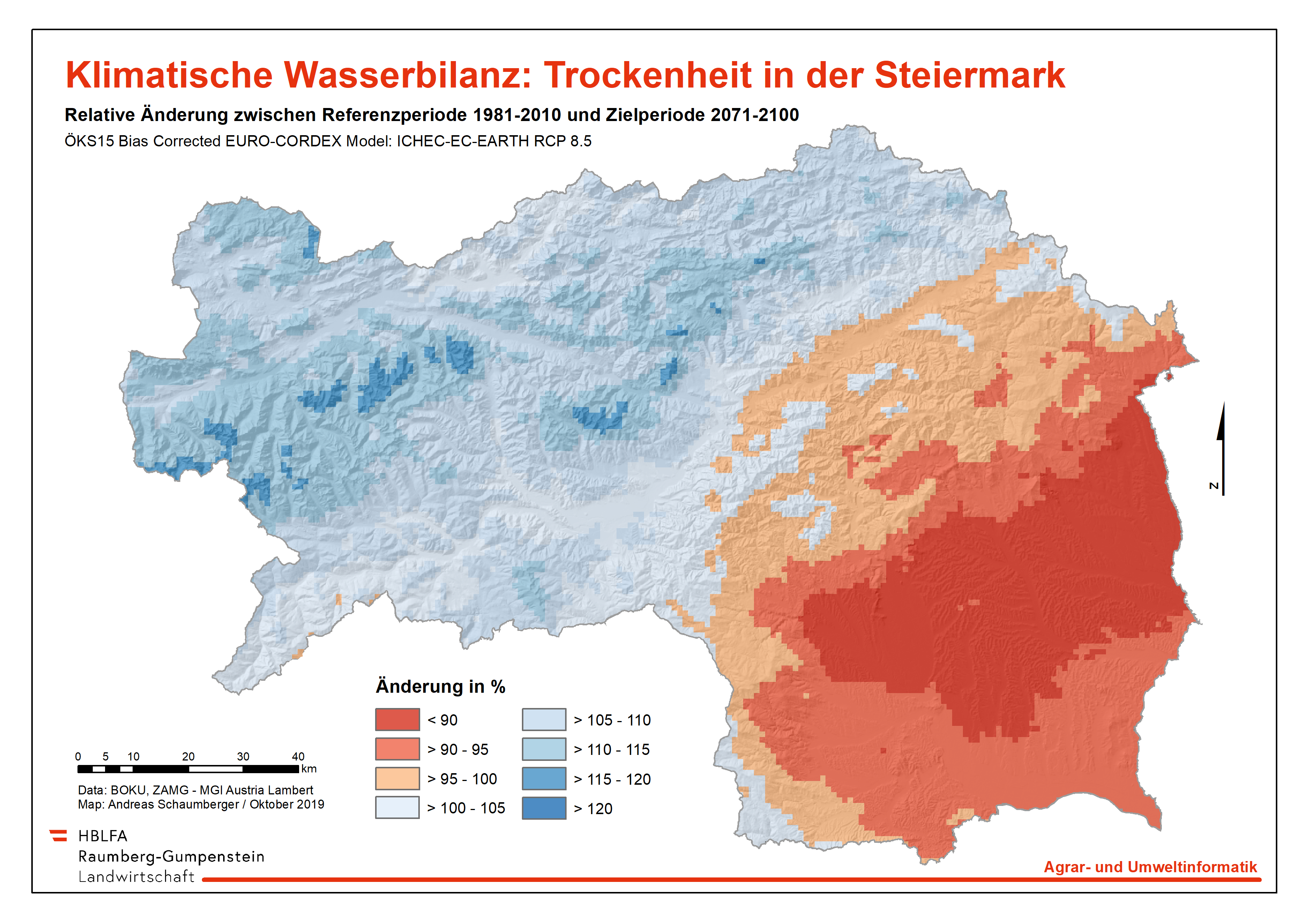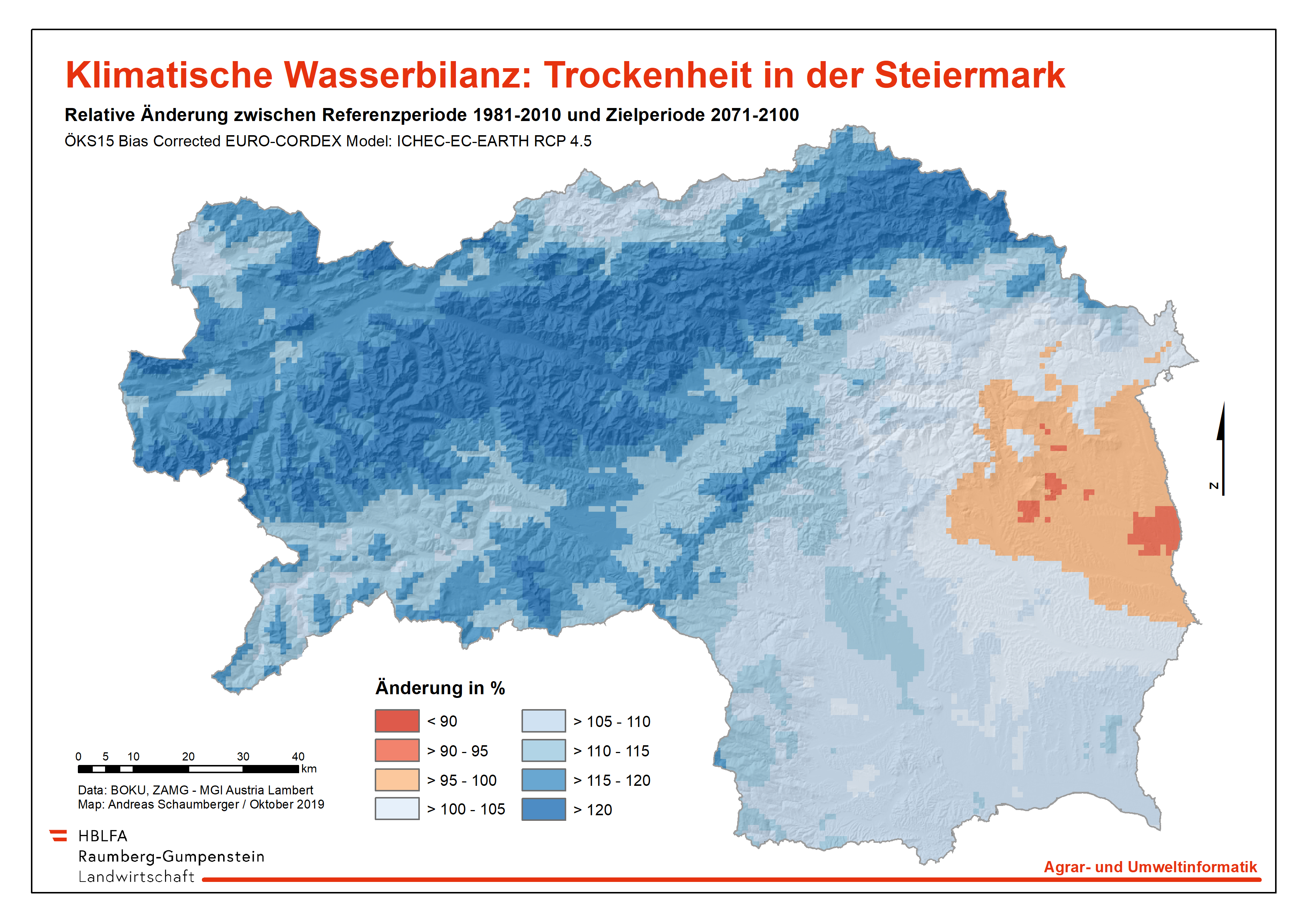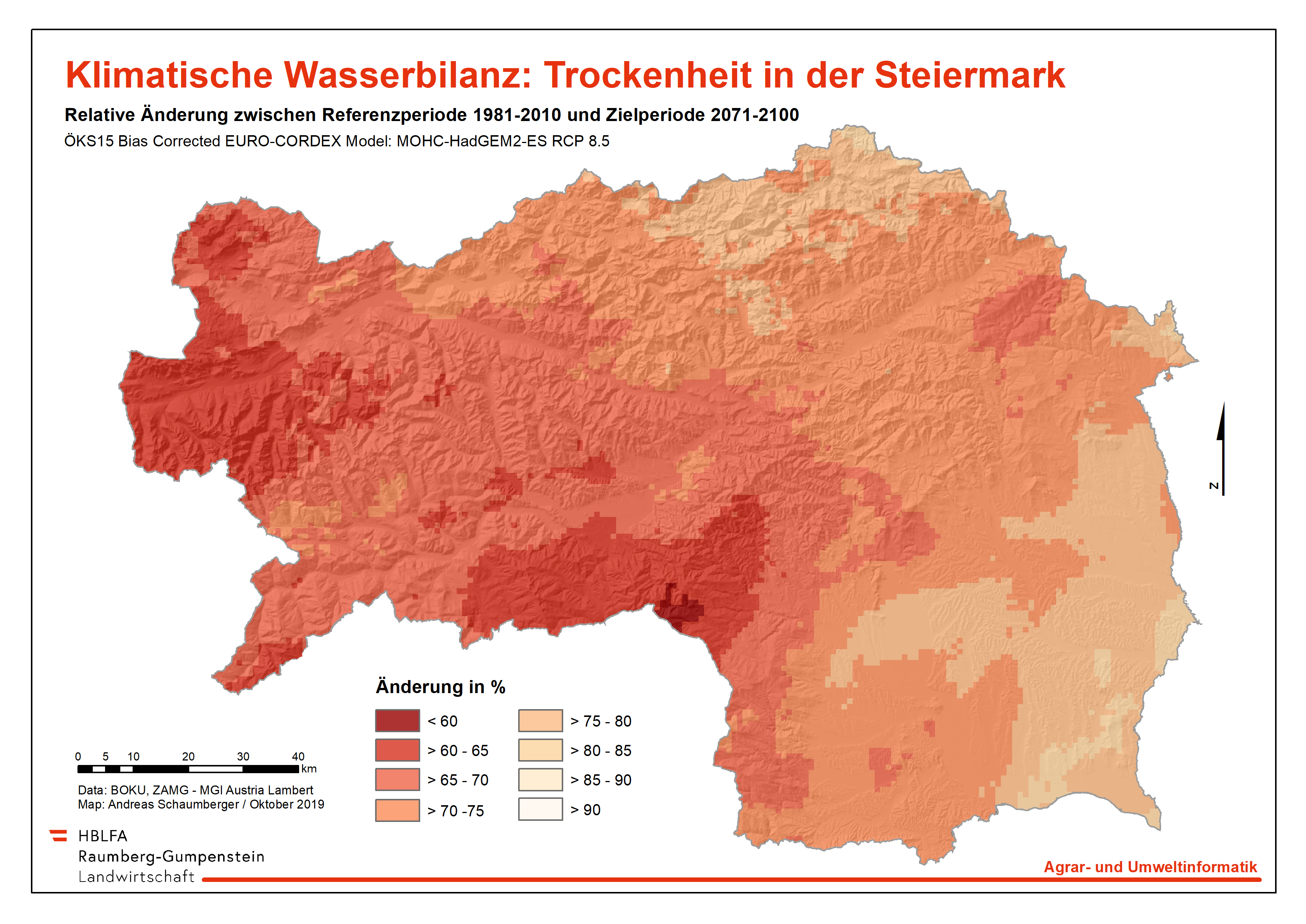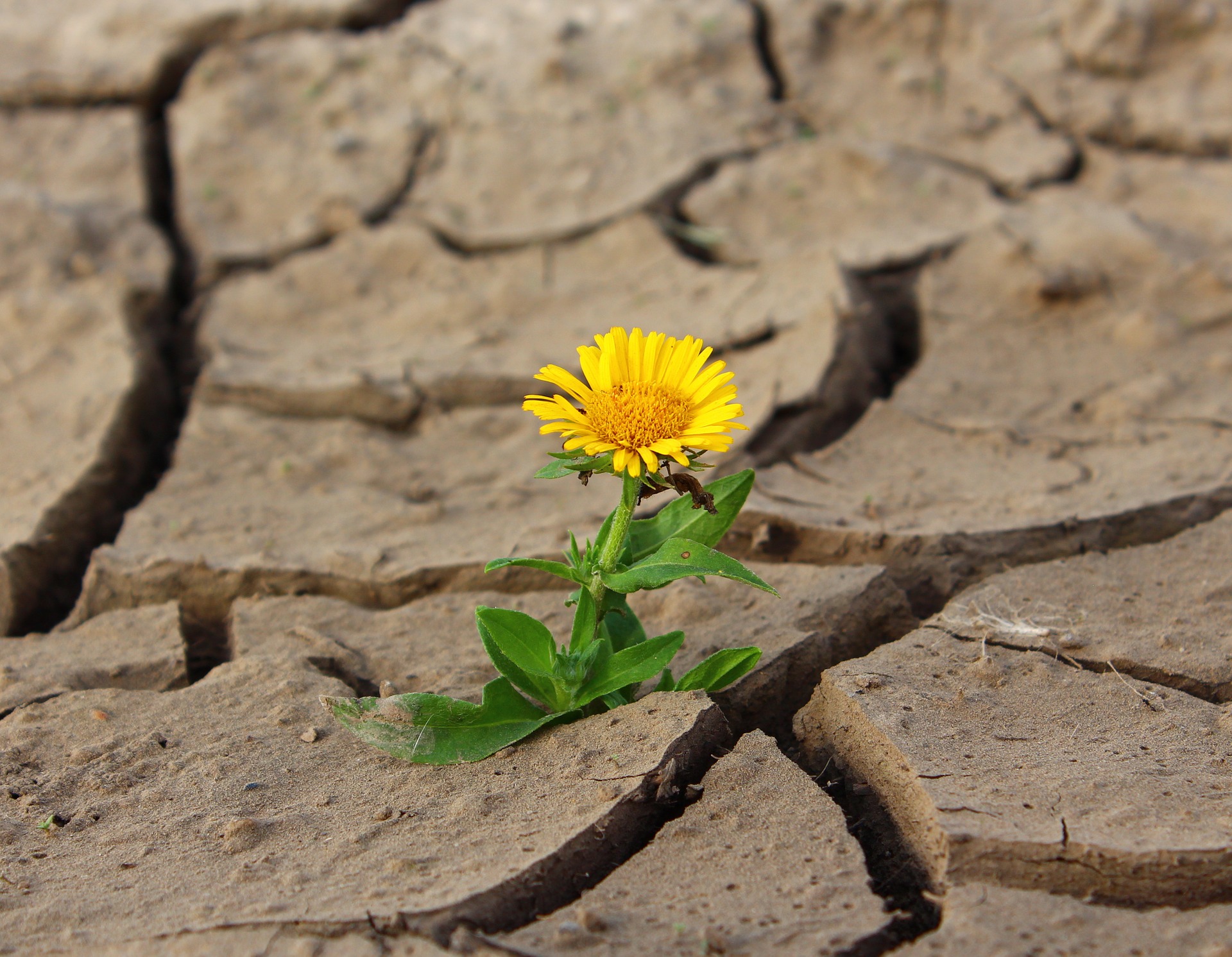In a work funded by the Office of the Styrian State Government (Department 10 Agriculture and Forestry), climate model data was prepared at the HBLFA Raumberg-Gumpenstein as a data basis for the Steirerteich project. Various climate scenarios from the data set “ÖKS15 – Climate Scenarios for Austria” were selected and used to calculate the climatic water balance. This parameter shows a more or less significant change in the framework conditions for agriculture for the individual scenarios. In particular, the water supply during the growing season, which can be well described with the climatic water balance, plays an outstanding role in land management. It is calculated from the ratio of precipitation and evaporation during the growing season. By comparing the climatic conditions in Styria from the past (1981 to 2010) and the future (2071 to 2100), relative changes emerge, which were evaluated for a climate protection scenario, a business-as-usual scenario and a dry scenario.
The Styria maps of future water availability can serve as a basis for planning regional climate adaptation measures by providing a glimpse into a possible future that depends entirely on how seriously and consistently we implement climate protection measures now.

Fig 1: Business as usual scenario

Fig 2: Climate protection scenario

Fig 3: Dry scenario
You can read a detailed description of the scenarios and evaluation results in the project report.







